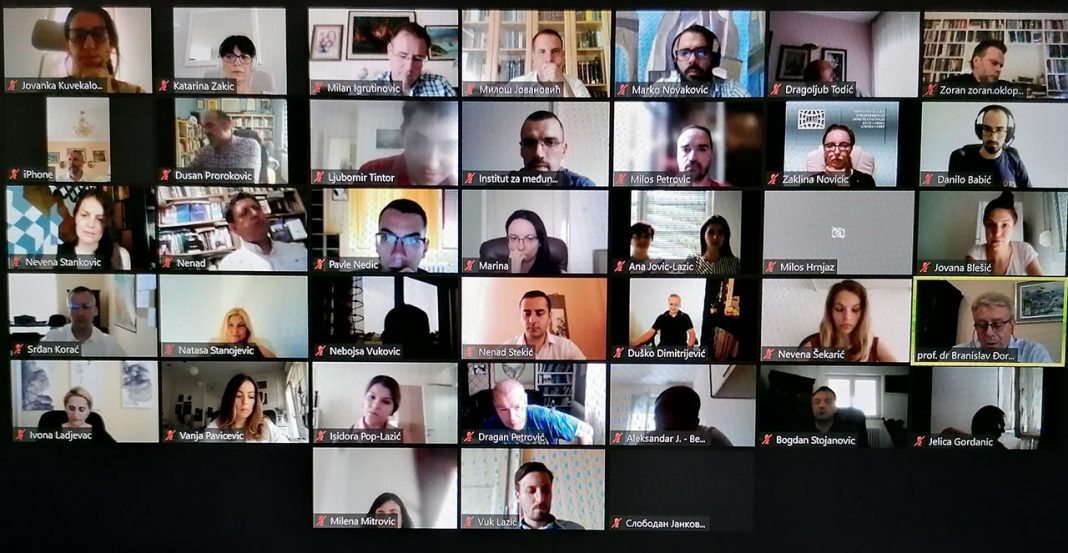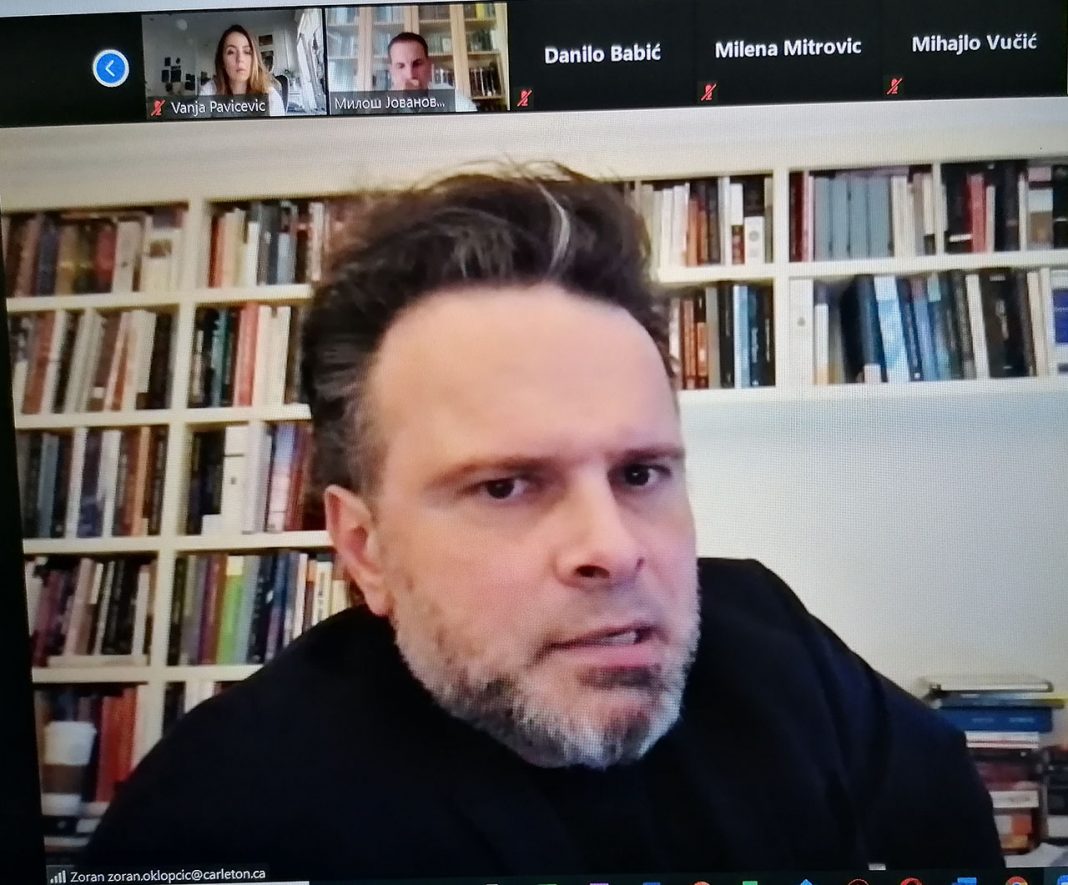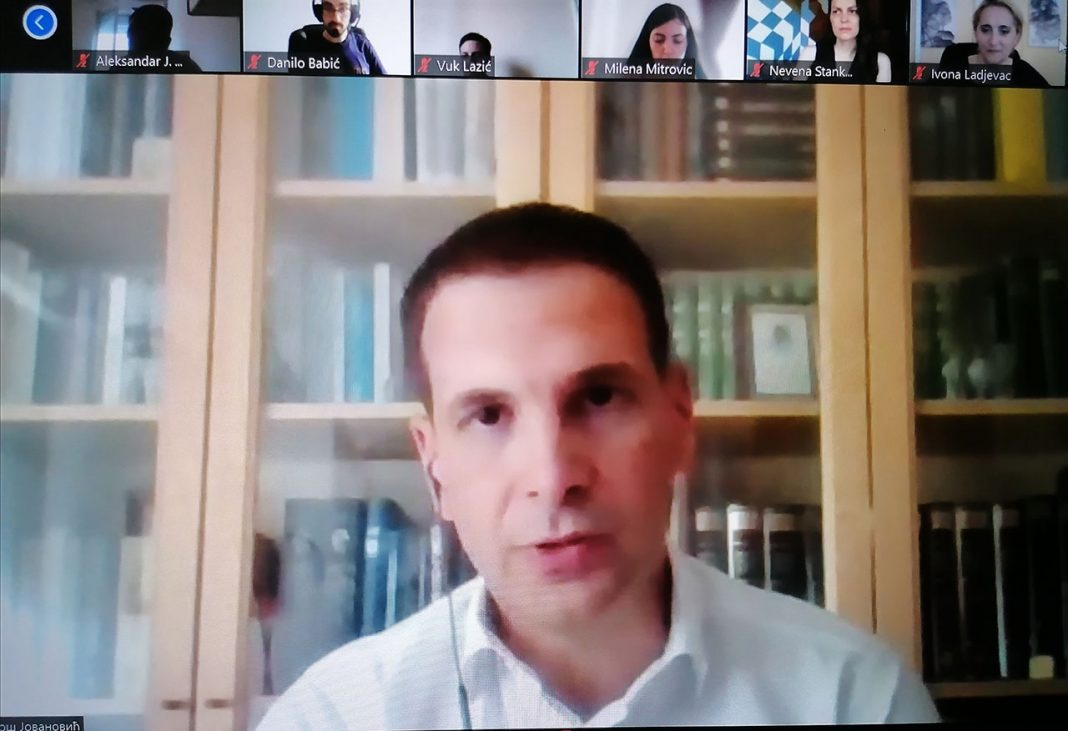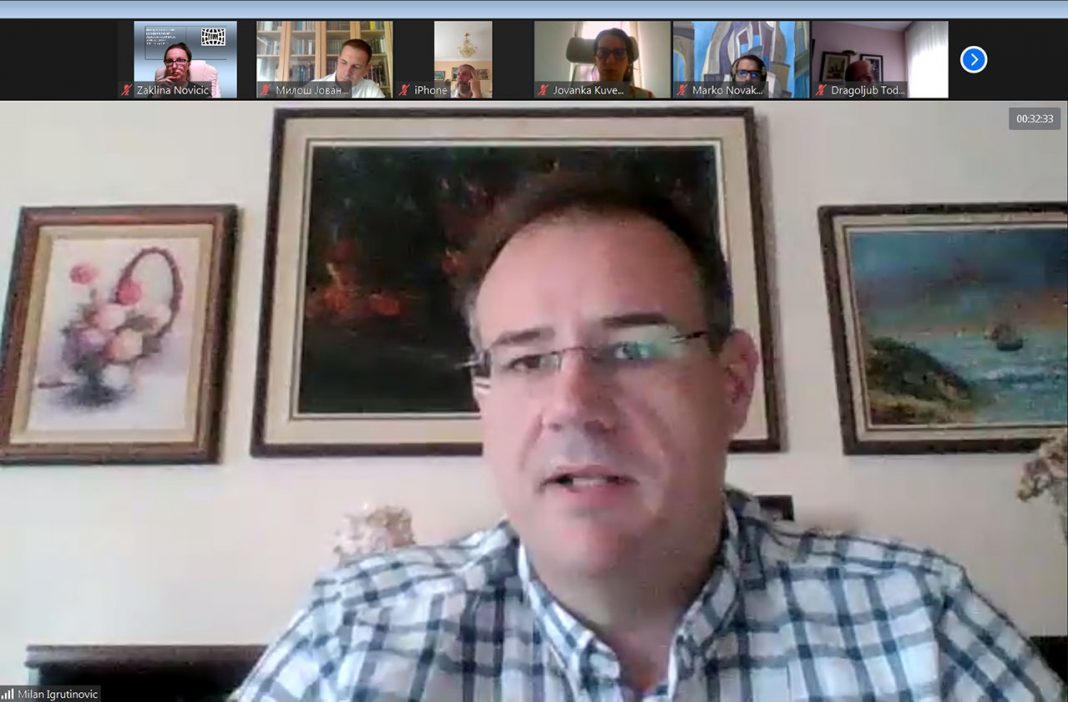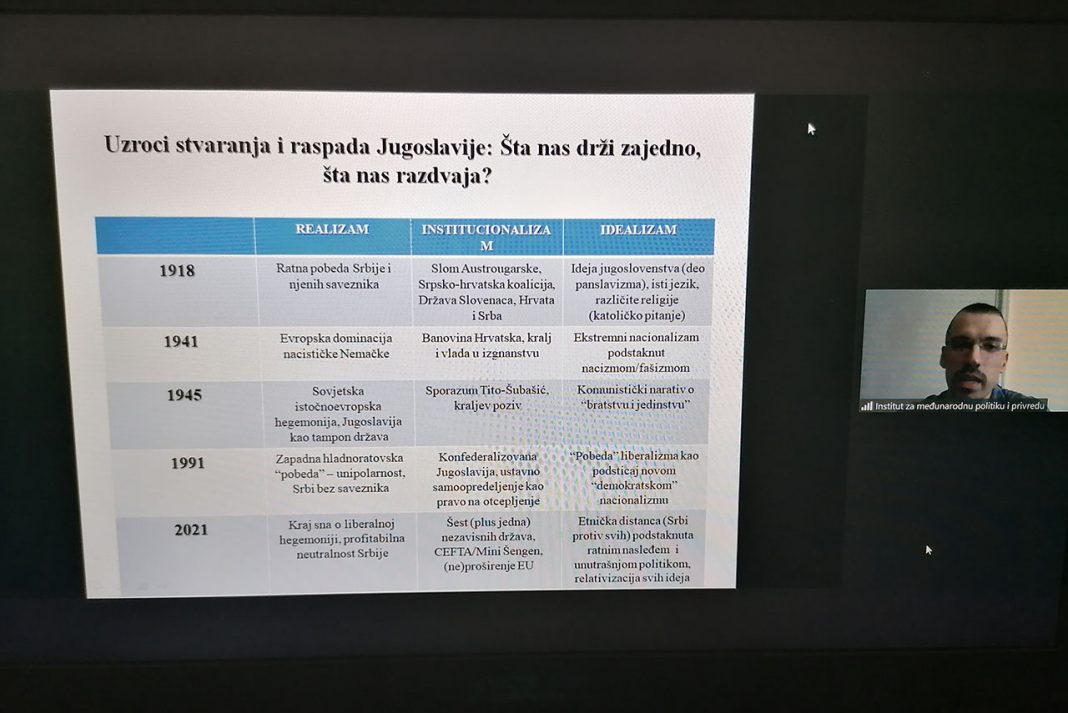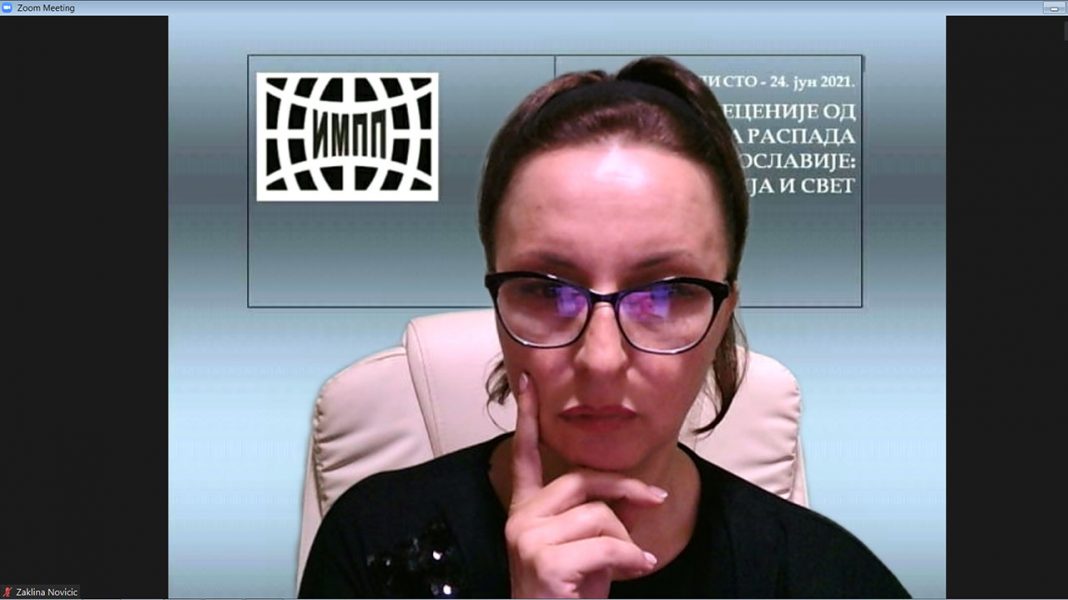On 24 June 2021, the Institute of International Politics and Economics (IIPE) held an online round-table conference on the topic “Three Decades Since the Beginning of Yugoslavia’s Disintegration: Serbia and the World.” Prof. Dr. Branisalav Đorđević, the director of the IIPE, stated from the start that the roots of the disintegration went much further back than formal declarations of independence by Slovenia and Croatia. Dr. Milan Igrutinović, a Research Fellow at the Institute of European Studies in Belgrade, explained in detail his understanding of Yugoslavia’s collapse in the context of the Cold War’s end and the new European political dynamics. Dr. Miloš Hrnjaz, an Associate Professor at the Faculty of Political Science at the University of Belgrade, summarized different perspectives on the legal nature of armed conflicts in Yugoslavia, beginning with the criteria for determining international and internal armed conflicts, which he expressed through the dilemma of the “war of us against ourselves, us against them or us against all”. Dr. Miloš Jovanović, an Assistant Professor at the Faculty of Law at the University of Belgrade, analyzed the “anti-legal logic” that accompanied Yugoslavia’s disintegration, as well as the inconsistency of the Badinter Commission’s opinions, the Hague tribunal’s verdicts, etc. He emphasized the changing geopolitical context of unresolved issues in the Balkans today. Dr. Zoran Oklopčić, an Associate Professor at the Department of Law and Legal Studies at Carlton University in Ottawa, used the events preceding Yugoslavia’s disintegration related to the Praxis International Journal (an international intellectual “scandal” related to a text about Kosovo by Dr. Mihajlo Marković) as a starting point to highlight the harmful “sentimental picture of the world” that prevailed in the consciousness of the Serbian elite and that he recognizes even today. Dr. Žaklina Novičić, a Research Fellow at the Institute of International Politics and Economics, referred to “humanitarian interventions” as the quintessence of liberal theories of international relations and the liberal world order after the Cold War, which set a precedent for wars in other parts of the world. Dr. Vladimir Trapara, a Research Fellow at the Institute of International Politics and Economics, presented his view of the causes of the creation and disintegration of Yugoslavia using international relations theories in an attempt to summarize the answer to the question of what unites us and what divides us in the contemporary Balkans.
© Copyright 1996-2025. IIPE. All rights reserved


